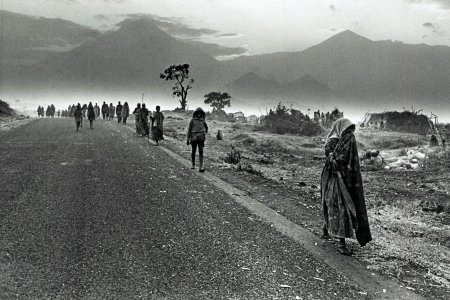 Sebastiao Salgado
Opinion
Sebastiao Salgado
Opinion
03/30/2021
Marc Le Pape
Jean-Hervé Bradol
There is a new book out by Patrick de Saint-Exupéry entitled La traversée. Une odyssée au cœur de l’Afrique [The crossing. An odyssey in the heart of Africa]. What odyssey? Crossing the Congo (Zaire, later the Democratic Republic of Congo) from Rwanda. The author describes his encounters, the beers he had here and there, the bumpy rides on the back of a motorcycle (to Kisangani), a trip down the Congo River, flying over the dense forest on his way to Mbandaka.
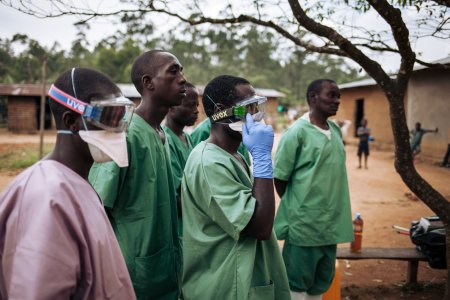 Alexis Huguet
Analysis
Alexis Huguet
Analysis
03/25/2021
Within four months of the first notification of Ebola cases in August 2018, the Nord Kivu (and Ituri) Ebola epidemic had become the second-largest on record. Notwithstanding a rapid and massive mobilisation of resources, the outbreak continued beyond the most pessimistic predictions and the case fatality rate (the proportion of people with the infection who die from it) remained static at 66%. Despite numerous lesson-learning exercises following the Ebola epidemic in West Africa in 2014–2016, and despite the development of new vaccines and treatments, after 3,444 cases and 2,264 deaths it is difficult to claim that outcomes are better this time around.
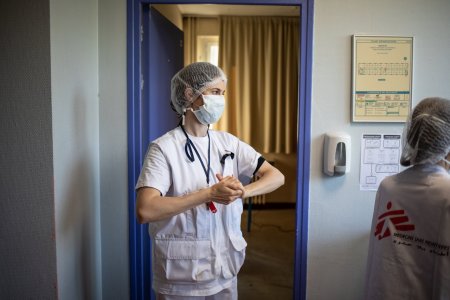 Agnes Varraine-Leca/MSF
Interview
Agnes Varraine-Leca/MSF
Interview
03/24/2021
Caroline Izambert
This article was published in Mouvements magazine on March 24, 2021. In the early spring of 2020, the humanitarian organization Médecins Sans Frontières (MSF) launched a mission in nursing homes in the Ile-de-France region, which had been hit hard by the Covid-19 pandemic. After considering the implementation of night-time palliative care, the organization finally decided to provide daytime support to the nursing homes in difficulty. Once the crisis was over in the summer, the MSF teams started offering mental health support to nursing home staff. A look back at this experience on September 28, 2020 with four members of the mission, Olivia Gayraud (project coordinator), Jean-Hervé Bradol (M.D. and CRASH1 member), Marie Thomas (psychologist) and Michaël Neuman (CRASH coordinator).
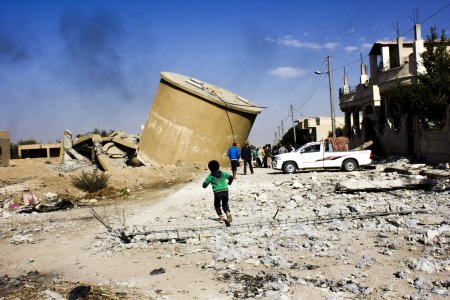 Diala Ghassan/MSF
Analysis
Diala Ghassan/MSF
Analysis
03/15/2021
Hakim Khaldi
This article was first published in Issue 2, Volume 2 of The Journal of Humanitarian Affairs.
How can a medical humanitarian organisation deliver emergency assistance in Syria when there is nowhere in the country where civilians, the wounded and their families, medical personnel and aid workers are not targeted? Not in the areas controlled by the government, nor in those held by the Kurdish Democratic Union Party (PYD), Islamic State of Iraq and the Levant (ISIL) or the different rebel groups. So what action could be taken, and how? Remotely or on site? At the very least, we had to decipher the diverging political and military agendas, and then adapt, persist or sometimes just give up. In this article, I will present the full range of methods used to acquire knowledge and obtain information as well as the various networks used to carry out this venture. I will also show how Médecins Sans Frontières’ operations became a balancing act, punctuated by episodes of adapting to the various difficulties encountered.
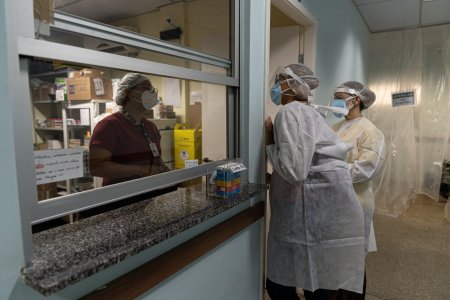 Mariana Abdalla/MSF
Opinion
Mariana Abdalla/MSF
Opinion
02/19/2021
Jean-Hervé Bradol
Isabelle Defourny
Blog written by Jean-Hervé Bradol, director of studies at the Crash.
Today, in order to obtain supplies of vaccines against Covid-19, there is neither a major difficulty related to price, nor a major obstacle related to intellectual property rules, nor a deficit in bio-medical research. However, these three topics are generally at the heart of MSF's communication in the area of access to medical care for those in most need. Our discourse must therefore evolve.
With the emergence of worrying variants of the virus present in the early stages of the pandemic and, as a consequence, the need to vaccinate on a global scale as quickly as possible, the world is facing a double challenge: biological engineering and ultra-industrial production – “ultra” echoing the need to produce on a global scale in a short period of time.
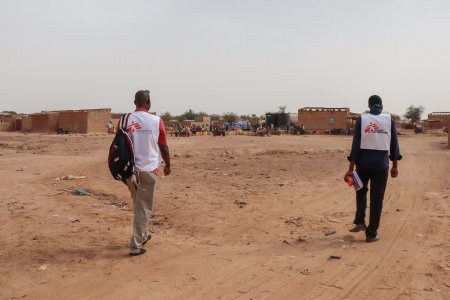 MSF
Analysis
MSF
Analysis
01/28/2021
Françoise Duroch
Michaël Neuman
In this article for the Humanitarian Practice Network, head of the Research Unit on Humanitarian Stakes and Practices (UREPH) for MSF Geneva Françoise Duroch and Crash director of studies Michaël Neuman discuss the implications and reasons behind the growing practice of staff profiling for MSF.
In October 2020, MSF organised a workshop in Dakar on staff profiling in operations in the Sahel. Profiling involves the selection of staff based on non-professional criteria, including nationality, skin colour, gender and religion. As such, it raises a number of ethical and practical concerns. As a result of profiling, US nationals have not been deployed in MSF operations in Colombia because of the risk of kidnapping, and Chadians and Rwandans have been excluded in the Central African Republic and eastern Democratic Republic of Congo respectively, because of regional conflicts. The use of profiling has increased in recent years in West Africa, as the threat of kidnapping of Westerners by radical jihadist groups has intensified.
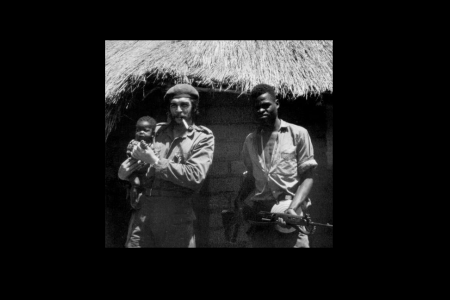 Anonymous/Museo Che Guevara
Analysis
Anonymous/Museo Che Guevara
Analysis
01/25/2021
Yann Santin
Operational partnerships between two organisations are a practical approach to humanitarian responses. MSF considers such partnerships when the objective it is pursuing in a country is similar to that of an existing national organisation, and when there is potential for synergy between these two entities. I would like to take a bit of a detour by looking at an experience that is in some ways similar: when Che Guevara tried to lead the revolution in Congo - Zaire by supporting the organisation of the guerrilla movement in the east of the country.
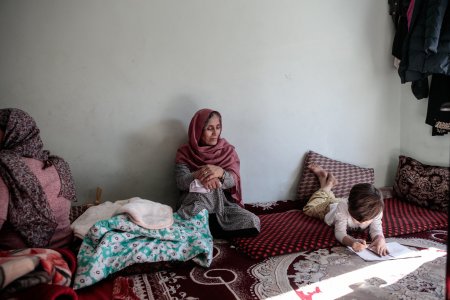 Sandra Calligaro
Analysis
Sandra Calligaro
Analysis
12/07/2020
Fabrice Weissman
The May 12th massacre at the MSF-supported maternity hospital in Dasht-e-Barchi (Afghanistan) raises, yet again, the question of our limits with regard to risk. What is an acceptable level of danger for humanitarian aid workers? How do we set limits? Why would MSF decide to leave Kabul but remain in Herat, for example, or leave Afghanistan but remain in Niger, Burkina Faso, Mali, or Somalia, where the teams also face extreme danger?
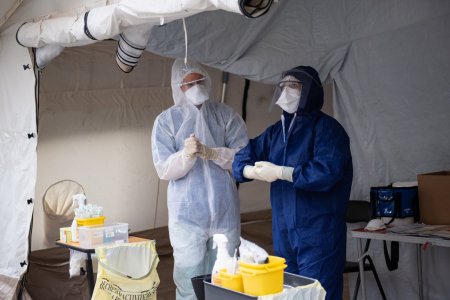 Clément Mahoudeau/MSF
Analysis
Clément Mahoudeau/MSF
Analysis
12/02/2020
Michaël Neuman
Emmanuel Baron
In this paper, the two authors examine certain aspects of the French response to the epidemic in the light of the experience of Médecins Sans Frontières (MSF) in that field, primarily with respect to the relationship between the actors of the response and the beneficiaries.
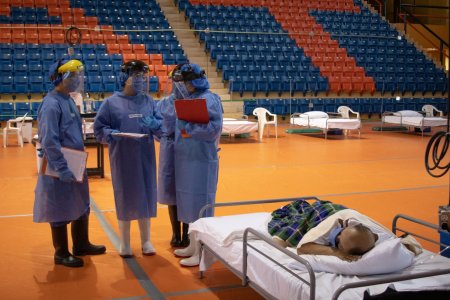 MSF/Arlette Blanco
Review
MSF/Arlette Blanco
Review
11/20/2020
Michaël Neuman
Natalie Roberts
After a few months of respite the coronavirus epidemic has resumed its spread. With the second wave becoming a reality in many European countries, the Crash team decided to share some recent reading on the biomedical, political and social aspects of the pandemic in an attempt to shed some light on this tragic Season 2. As in previous editions, some articles are in English and some in French, and they are taken from both mainstream and specialist sources.
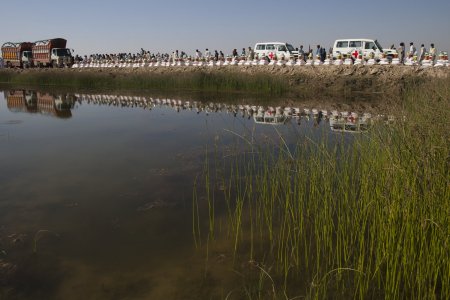 ICRC/MATTHYS, Olivier/2011/ V-P-PK-E-01284
Analysis
ICRC/MATTHYS, Olivier/2011/ V-P-PK-E-01284
Analysis
11/18/2020
Joël Glasman
The principle of impartiality, which is often reduced to a principle of mathematical distribution, was originally coined by the International Committee of the Red Cross (ICRC), at that time on a quest for legitimacy. However, reducing impartiality to a resource distribution algorithm strengthens the overarching position held by non-territorial organisations. This is the theory put forward by the author in his latest book.
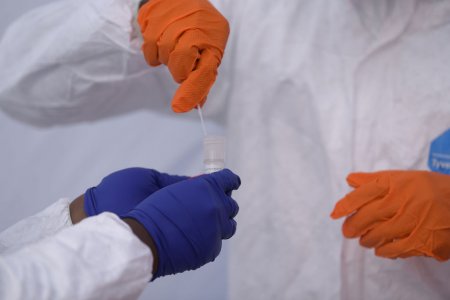 Taimy Alvarez/MSF
Opinion
Taimy Alvarez/MSF
Opinion
11/18/2020
Natalie Roberts
The benefit of the vaccine is only real in the context of a rational and comprehensive biomedical, social, political and economic response, adapted to the local assessment of the health crisis and its impacts.
 Sebastiao Salgado
Opinion
Sebastiao Salgado
Opinion








